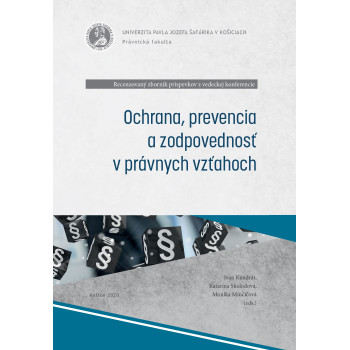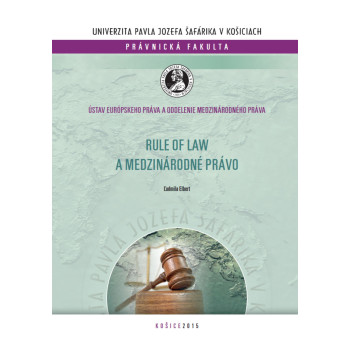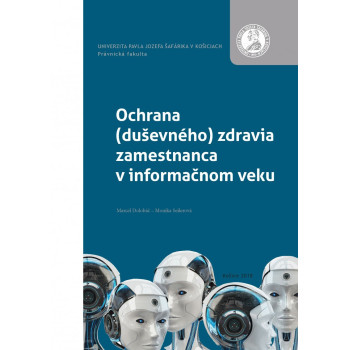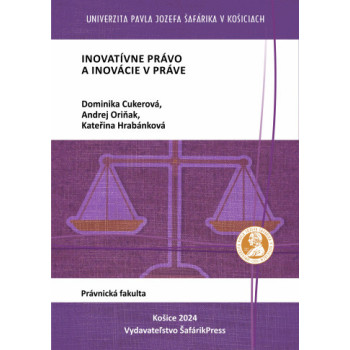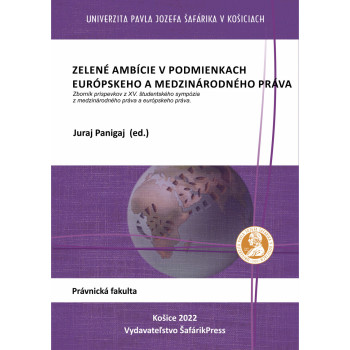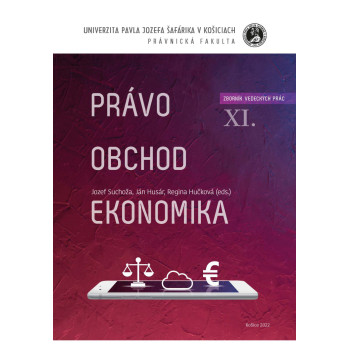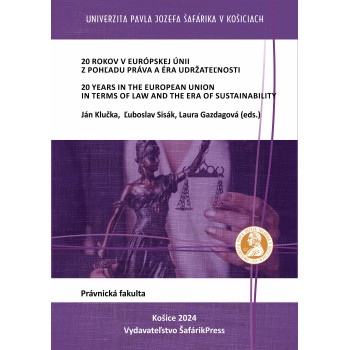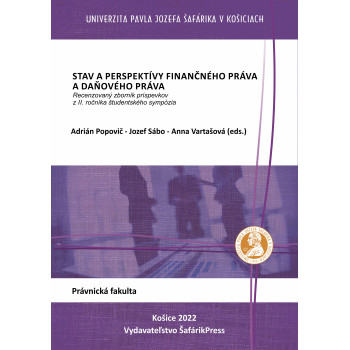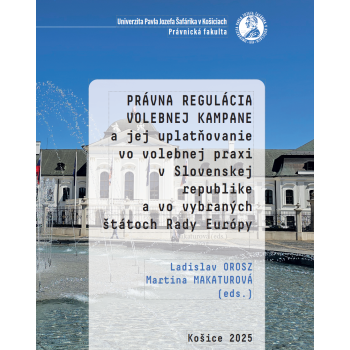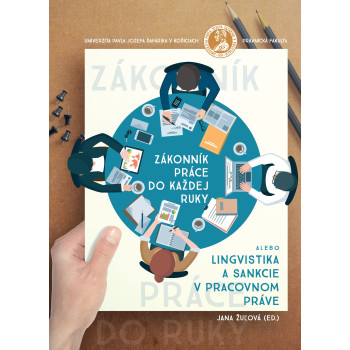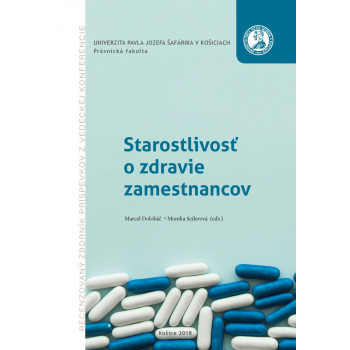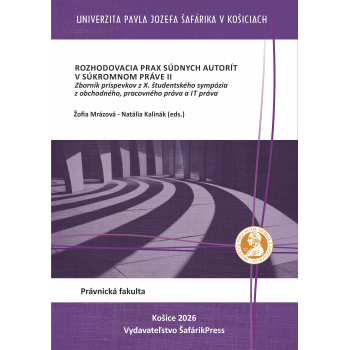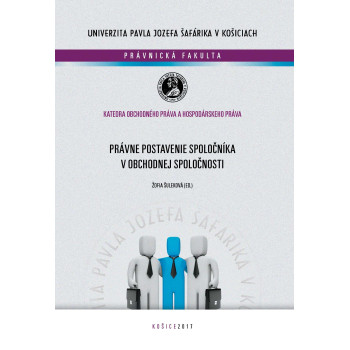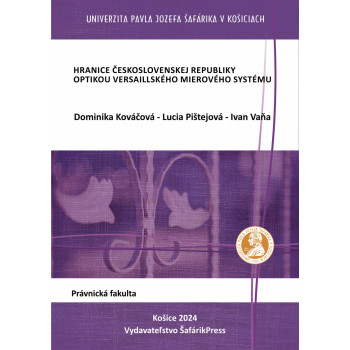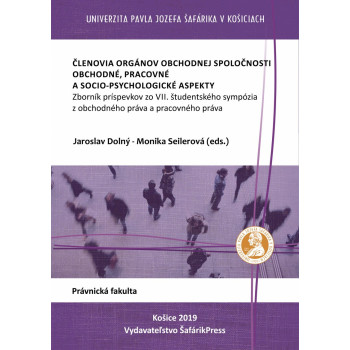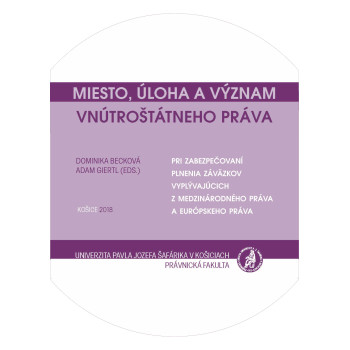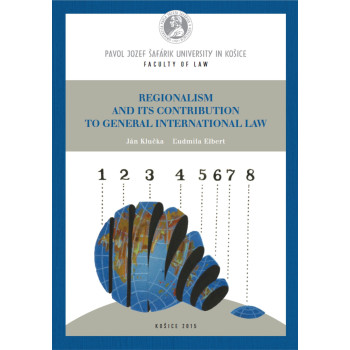
Ochrana, prevencia a zodpovednosť v právnych...
E-book
Ivan Kundrát - Katarína Skolodová - Monika Minčičová (eds.)
Peer-reviewed conference proceedings
The continuation of the tradition of an international scientific conference of doctoral students and young researchers have not been exception this year. The Department of Labour Law and Social Security Law, Faculty of Law, Pavol Jozef Šafarik University in Košice, as the organizer of this year's international scientific conference, has chosen a topic entitled "Protection, Prevention and Legal Liability."
Because of the unfavorable epidemiological situation and the cancellation of scientific, professional and other mass events, the conference was transferred to a virtual form. The electronic platform of the conference via online discussion was realized from 3rd to 17th April 2020. The protective function of law, preventive obligations, but also the emerging responsibilities are a vast source of ideas for scientific research, asking questions and finding answers to a range of theoretical and application-law problems in every area of public and private law. Evidence of a generously understood topic is the presented proceedings of scientific papers.
The proceedings, created within the solution of the grant task APVV-16-0002 -Mental Health in the Workplace and Employee Health Assessment, includes various aspects of legal regulation, from academic authors and authors from legal practice. Despite the diversity of the scientific focus, the papers are characterized by a unifying line corresponding to the central theme of the conference and show the interconnectedness of the different areas of law.



